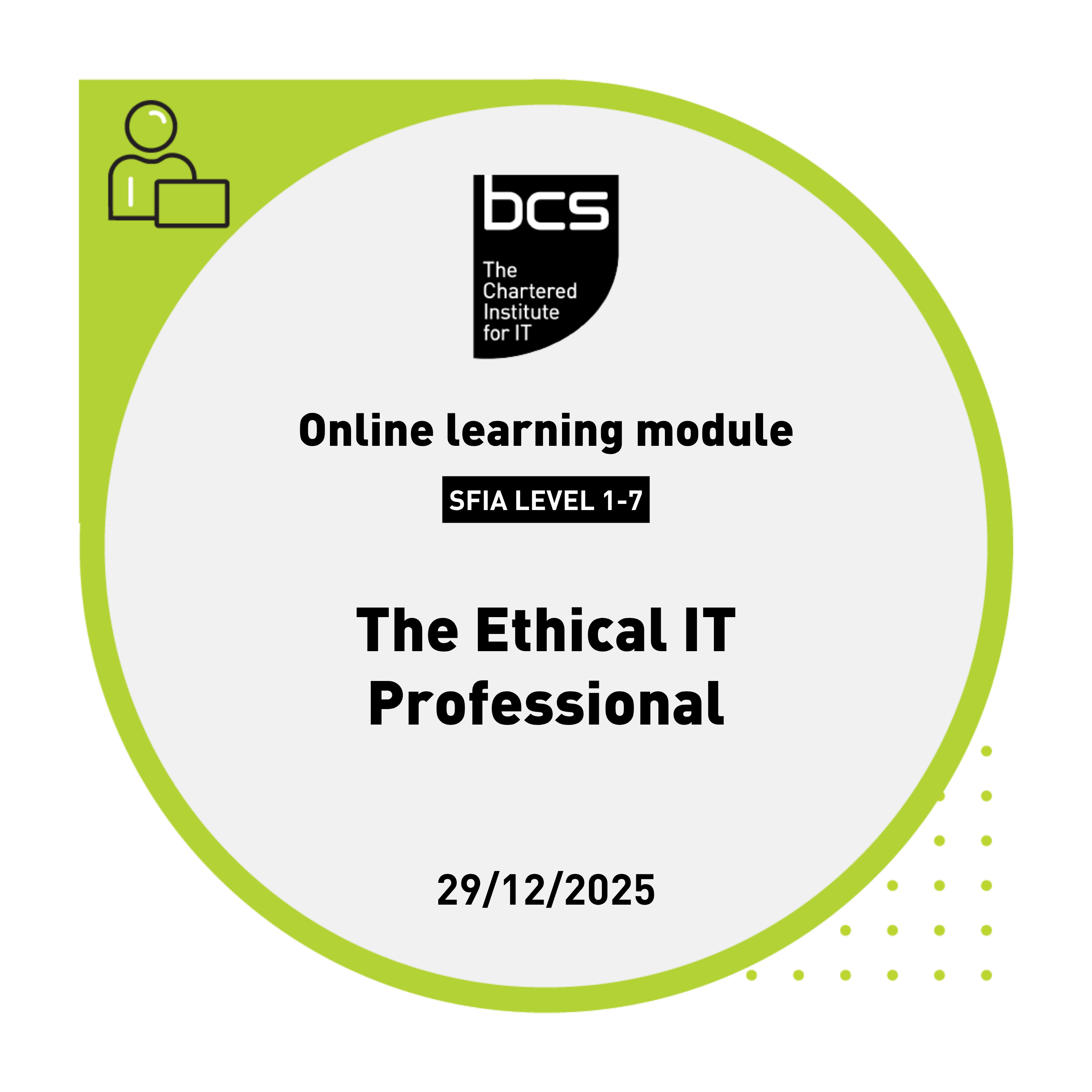
Saeed Ahmed
Cybersecurity Specialist & Researcher
About Me
First Class Cybersecurity graduate (USW) with 4+ years in IT & support. Expert in SecOps & Cloud, I bridge technical & human security. Authored a crypto-scam framework presented at an international conference. A versatile, forward-thinking pro.
Professional Memberships
As a dedicated cybersecurity professional, I am committed to upholding the highest standards of ethics and conduct in the industry. I am a member of the British Computer Society (BCS), which provides me with access to a wealth of resources, networking opportunities, and professional development programs.
Skills & Expertise
A collection of technologies and methodologies I have gained expertise in, validated through professional experience and certifications.
Cybersecurity & Defence
- Cybersecurity
- Network Security
- Incident Response
- Cyber Defense
- Data Security
- Penetration Testing
- Ethical Hacking
- Threat Detection & Assessment
- Vulnerability Assessment & Scanning
- Malware Analysis
- Phishing & Social Engineering
- SIEM & Event Monitoring
- Firewalls
Governance, Risk, Compliance & IAM
- Information Security
- Risk Assessment & Management
- Security Policies
- Information Assurance
- Identity & Access Management (IAM)
- Authentication
- Security Breach Analysis
- Information Security Analysis
Cloud, Infrastructure & Technical Skills
- Cloud Security
- Cloud Computing (GCP)
- Linux
- System Administration
- Python
- Scripting
- IT Infrastructure Management
- Operating Systems
- Internet Of Things (IoT)
- Information Systems (IS)
Professional & Business Competencies
- Problem Solving
- Teamwork
- Customer Support
- Professional Services
- Dealing With Enquiries
- Operational Reporting
- Computer Literacy
Education
Masters by Research in Cybersecurity

University of South Wales
On-GoingAward Date: TBD
Description:
Executing a year-long, independent research programme focused on Crypto Fraud Prevention. Unlike a standard taught programme, this degree functioned as a rigorous R&D project requiring self-directed innovation, data synthesis, and critical analysis to result in a solid crypto fraud prevention framework.
BSc (Hons) Applied Cybersecurity

University of South Wales
CompletedAward Date: 17 June 2025
Final Grade: First Class Honours
Description:
The BSc (Hons) Applied Cybersecurity programme is designed to equip students with the knowledge and skills necessary to protect organisations from cyber threats. The curriculum covers a wide range of topics, including network security, cryptography, ethical hacking, digital forensics, and risk management. Students will also gain practical experience through hands-on labs and real-world projects, preparing them for careers in cybersecurity.
View Detailed Module Breakdown
Final Year (2024/2025) – Level 6
This year demonstrates a high level of specialisation and academic excellence, culminating in a First Class Honours classification.
- Secure Operations And Incident Management (IY3U001) 76%
- Security Operations & Penetration Testing (IY3D607) 75%
- Cyber Dissertation Project (IY3D610) 68%
- Cyber Professional In Practice (IY3H001) 58%
Second Year (2023/2024) – Level 5
- Compliance And Risk Management (IY25510) 61%
- Cyber Crime Research Project (IY2H511) 58%
- Web Applications And Cloud Security (IY25507) 50%
- Digital Crime Scene Management (IY25508) 50%
- Critical Systems Infrastructure (IY25512) 48%
- Secure Systems (IY2T509) 46%
First Year (2022/2023) – Level 4
- Network Configuration (IY1S407) 52%
- Cyber Security Tools And Practices (IY1S402) 49%
- Information Security And Governance (IY1S409) 47%
- Computer Systems & Security (IY15403) 46%
- Programming (IY1S408) 44%
- Professional Practice And Employability (IY1S401) 35% (Compensated Pass)
BTEC Level 3 Extended Diploma in Computing
Coleg Gwent
CompletedAward Date: 15 August 2022
Final Grade: DMM (Equivalent to 3 A-Levels)
Description:
The BTEC Level 3 Extended Diploma in Computing is a comprehensive programme that provides students with a solid foundation in various aspects of computing. The curriculum covers a wide range of topics, including programming, database management, networking, web development, and systems analysis. The course is designed to equip students with both theoretical knowledge and practical skills, preparing them for further education or careers in the IT industry.
View Detailed Module Breakdown
Distinction
- Business Applications of Social Media
- The Impact of Computing
Merit
- Principles of Computer Science
- Fundamentals of Computer Systems
- IT Systems Security and Encryption
- Digital Graphics and Animation
- Website Development
- Relational Database Development
- Systems Analysis and Design
Pass
- Planning and Management of Computing Projects
- Computer Networking
- Systems Methodology
Other
- Software Design and Development Project: Near Pass
Credentials & Badges
My certifications and achievements validate my expertise across a range of IT and cybersecurity disciplines.
Credly By PearsonWork Experience
Cybersecurity Open-Day Volunteer

University of South Wales
Role Duration: July 2025
Key Responsibilities:
- Facilitated interactive cybersecurity activities for secondary school visitors, focusing on practical applications of OSINT (Open-Source Intelligence) and critical thinking.
- Guided students through engaging challenges designed to develop analytical reasoning and problem-solving skills in a cybersecurity context.
- Translated complex cybersecurity concepts into accessible and engaging content for a younger audience, fostering an early interest in the field.
Cyber Clinic Volunteer

University of South Wales
Role Duration: October 2022 - May 2024
Key Responsibilities:
- Provided pro-bono cybersecurity advice to members of the public on a range of personal security topics.
- Educated individuals on best practices for password security, phishing awareness, and safe online behaviour.
- Assessed personal security risks and recommended clear, actionable steps for improvement.
Mastercard Cybersecurity virtual experience

Mastercard
Role Duration: July - August 2024
Key Responsibilities:
- Completed a job simulation where I served as an analyst on Mastercard’s Security Awareness Team.
- Helped identify and report security threats such as phishing.
- Analyzed and identified which areas of the business needed more robust security training and implemented training courses and procedures for those teams.
JPMorgan Chase & Co. Cybersecurity virtual experience
JPMorgan Chase & Co.
Role Duration: August - September 2024
Key Responsibilities:
- Financial Fraud Analysis: The first task involved analysing a large dataset of fraudulent transactions in financial payment services. This required applying data analysis techniques to identify patterns and anomalies indicative of financial crime. This activity directly relates to the risk management component of GRC, as identifying such patterns is crucial for protecting sensitive financial data and preventing breaches.
- Application Security Implementation: I was tasked with learning and applying fundamental application security principles to a website. This involved identifying common vulnerabilities (such as those on the OWASP Top 10) and implementing corrective measures, demonstrating practical skills in proactive security and the principle of Privacy by Design.
- Threat Intelligence & Machine Learning: The final module required building "Spam or Ham?" email classifier. This practical task involved using data science principles to develop a tool that could intelligently distinguish between legitimate emails and potential phishing threats. This showcases skills in applying technology to mitigate social engineering attacks, a primary vector for data breaches and a key concern under GDPR.
IT Support Technician (Volunteer)
Clwb Ffoto
Role Duration: March 2025 - Present
Key Responsibilities:
- Provided technical support to end-users, resolving hardware and software issues efficiently.
- Assisted in the installation, configuration, and maintenance of computer systems and networks.
- Troubleshot and resolved IT-related problems, ensuring minimal downtime for users.
- Maintained accurate records of support requests and resolutions using ticketing systems.
- Collaborated with team members to improve IT processes and enhance service delivery.
IT Support Technician (Volunteer)
Ffoto Newport
Role Duration: November 2021 - December 2024
Key Responsibilities:
- Provided technical support to end-users, resolving hardware and software issues efficiently.
- Assisted in the installation, configuration, and maintenance of computer systems and networks.
- Troubleshot and resolved IT-related problems, ensuring minimal downtime for users.
- Maintained accurate records of support requests and resolutions using ticketing systems.
- Collaborated with team members to improve IT processes and enhance service delivery.
IT Support Technician (Volunteer)
35mm Creative Agency
Role Duration: February 2022 - December 2024
Key Responsibilities:
- Provided technical support to end-users, resolving hardware and software issues efficiently.
- Assisted in the installation, configuration, and maintenance of computer systems and networks.
- Troubleshot and resolved IT-related problems, ensuring minimal downtime for users.
- Maintained accurate records of support requests and resolutions using ticketing systems.
- Collaborated with team members to improve IT processes and enhance service delivery.
Customer Assistant
B&Q
Role Duration: July 2021 - Present
Key Responsibilities:
- One of the largest home improvement retailers in the UK
- Known for its wide range of products and competitive pricing
- Handled all IoT DIY, AV equipment and networking enquiries and support
- Provided exceptional customer service in a fast-paced retail environment
Research & Projects
Here is my research output and case studies that demonstrate my skills and expertise.
Ray of Hope for the Desperate
Currently Researching
This research expands on the findings of Feast on the Desperate, a study that explored the impact of social engineering on individuals and organisations. It delves into the role of parasocial relationships in scam victimisation and provides practical recommendations for individuals to protect themselves from these sophisticated schemes.
Expected Completion: TBD
Metaverse & Exposure of Children to the Dark Corners of the Internet
Currently Researching
The metaverse, an expanding network of persistent, immersive virtual worlds, presents novel challenges for child safety. While platforms such as VRChat offer unprecedented social interaction, their open and often unmoderated nature creates significant risks. These environments can expose minors to harmful content, grooming, and simulated sexual assault, mirroring the dangers of the internet's most unregulated spaces. This research investigates the specific vulnerabilities inherent in such platforms, analyses the mechanisms through which harm occurs, and evaluates potential technological and policy-based safeguards to protect children in these nascent digital territories.
Expected Completion: TBD
Feast on the Desperate
Release Date:
The Challenge: This paper addresses the escalating threat of cryptocurrency scams by examining the social engineering and psychological tactics that exploit individuals. We identify a critical gap in public awareness and expose how social media, leveraging platforms, influencers, and targeted advertising, is a primary vector for these sophisticated schemes. The research highlights that these scams succeed not just through technical means, but by preying on human vulnerabilities like FoMo (Fear of Missing Out) and other emotional manipulations.
Methodology & Analysis: Through a detailed analysis of scam victimisation and real-world testimonies, this work delves into the psychological underpinnings of why individuals fall prey to these schemes. The paper synthesises elements from disparate fields, phishing prevention, the SCAMS Checklist, the I-PACE model, and insights from parasocial relationships to develop a new, comprehensive framework for scam prevention. This interdisciplinary approach provides a more holistic defence strategy.
The Key Findings & Contributions:The study's findings confirm that scammers systematically exploit financial fears and parasocial trust to bypass logical decision making. Our primary contribution is the proposed comprehensive framework, which empowers individuals with a combined set of tools to identify and avoid fraudulent cryptocurrency schemes. This framework's novelty lies in its integration of psychological and social factors with established technical prevention methods.
Implications & Conclusion: The implications of this research are significant for both individuals and organisations. By understanding the psychological tactics employed by scammers, we can better equip ourselves to resist these manipulative strategies. The proposed framework serves as a valuable resource for developing targeted educational initiatives and preventive measures in the fight against cryptocurrency scams.
Lecture View Presentation Paper Release SoonCyber Drill: Incident Investigation of a Compromised System
Release Date:
FCB Bank PLC was the target of a sophisticated cyberattack that resulted in a data breach and the theft of sensitive customer information. The multi-stage attack involved gaining initial access, reconnaissance, tool deployment, internal network penetration, data collection and exfiltration, and attempts to destroy evidence. The breach has exposed FCB Bank PLC to potential legal, regulatory and reputational damage. Immediate action is required to contain the breach, fully investigate its extent and implement robust preventative measures to prevent future incidents.
View Report DetailsCode Red for Healthcare: Why the NHS is Losing the War on Ransomware
The National Health Service (NHS) is in a state of perpetual crisis, grappling with understaffing, overcrowding, and systemic delays. This operational fragility is being dangerously amplified by a relentless wave of cyberattacks. Ransomware, in particular, has proven to be a uniquely devastating threat, capable of crippling hospital operations, compromising patient data, and putting lives at risk.
This analysis argues that the NHS's vulnerability is not just a matter of insufficient funding but a fundamental flaw in its technological foundation. Its deep-seated reliance on traditional, high-maintenance operating systems like Windows creates an attack surface that is simply too vast to defend. The solution lies in a strategic pivot to a modern, secure-by-design platform. By adopting a 'Zero Trust' architecture, exemplified by ChromeOS, the NHS can build a more resilient, manageable, and inherently secure infrastructure fit for the challenges of the 21st century.
View White PaperSnort Challenge - Live Attack
This report details a cybersecurity exercise focused on using the Snort Intrusion Detection and Prevention System (IDS/IPS) to neutralise two distinct threats within a simulated corporate network. The project successfully demonstrated the process of traffic analysis, signature creation, and rule deployment to mitigate both an external brute-force attack and an internal reverse-shell compromise.
View Report DetailsJPMorgan-Transaction - Detecting Financial Fraud with Machine Learning
This project tackles the critical challenge of fraud in the burgeoning world of mobile money. By analysing a large-scale dataset from a financial services provider, I uncovered the subtle behavioural patterns that distinguish legitimate customers from fraudulent actors.
The core of this work involved moving beyond existing detection flags to engineer a highly accurate predictive model. The result is a set of actionable insights and a robust machine-learning framework designed to help organisations pre-emptively identify and stop fraud, enhancing system security and protecting customer assets.
View Project DetailsContact
If you would like to get in touch, please feel free to reach out via email or connect with me on LinkedIn.







